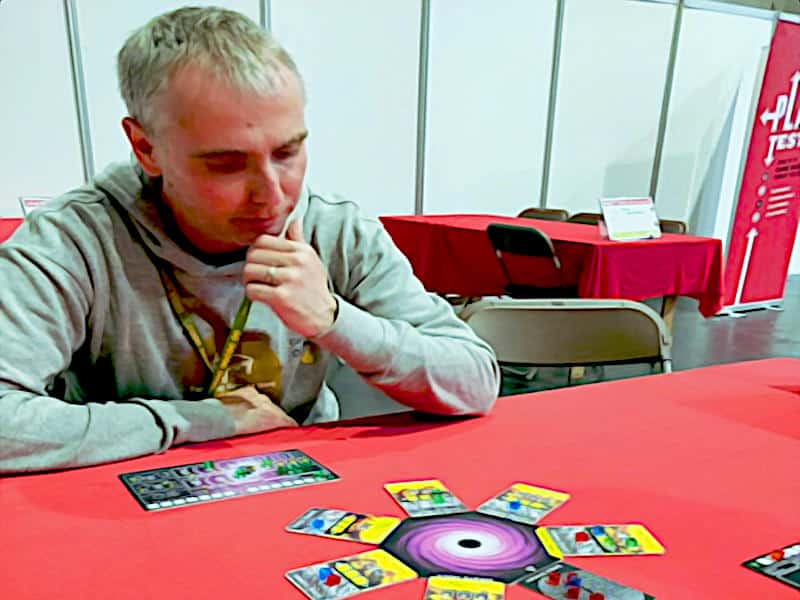It is sometimes nice to discuss semantics. It can get a bit abstract and more often than not rather nuanced, but that’s not necessarily a bad thing. So while we all might be talking about the same thing in broad strokes, we are likely to have slightly different definitions in our heads. Therefore I want to look at how to define the term “board game” in this article and see where it takes me.
Definitions
Of course, defining what makes a game versus an activity versus a sport versus whatever else, is not easy. Some might define a game as an activity usually involving skill, knowledge or chance, where you follow a set of rules to try to win against one or more opponents or to solve a puzzle. Board games fit into that definition quite nicely, I think. When it comes to winning against an opponent, you could easily define the game itself as a possible opponent, thereby allowing for corporative games to still meet the requirements.
Even so, the definition can get people’s heckles up. For some, certain games are mere activities, using that term in a derogatory sense. Personally, I can see why some games are seen as activities, but I would never use that term in a negative way. Activities or not, games of all types will be fun for different types of people, while at the same time not being suitable for everyone. Some people just don’t like games or activities, which is absolutely fine.
I think there is room for a whole article just to discuss how best to define what most of us understand to be board games. It’s very hard to cover it well, without excluding games that might sit on the fringes, but are just as much a game as any other. There is even an overlap with sports, of course. I mean, chess is seen as a competitive sport, even though it’s much closer to being a traditional board game. So trying to draw a line of any sort is going to be nigh on impossible.
Physical vs Digital
There is also an ongoing discussion whether digital board games are still board games. It’s similar to the view that board games are a form of art. Of course, there is such a thing as digital art. However, seeing the Mona Lisa in person is nothing like looking at a photo. A physical piece of art becomes something different when it is copied and reproduced in a different medium, including digitally. Many would argue it is no longer art, even though derivatives of art can become pieces of art in their own right, of course.
Similarly, playing board games online is a very different experience. Depending on the platform, certain things are lost and others are added. Not having to deal with setting up the game or putting it away or not having to worry about dealing with income at the end of your turn is nice when you play online. At the same time, you no longer have any tactility and you can’t look your opponents in the eye. Sure, there is video chat, but it’s still not the same.
So you could easily argue that a board game is no longer a board game when it is played digitally. I mean, the clue is in the term. There is no physical board, so it’s no longer a board game. It’s become a computer or video game. That in itself isn’t a problem. There is nothing wrong with playing online. However, people will argue playing games online loses so much that what you play is no longer a board game.
Personally, I disagree with that. In a way, some board games are only properly playable online. Their physical counterparts are too much of a pain. However, I do agree that the online experience is very different.

Prototypes, Reprints and 2nd Editions
Of course, you could apply the same argument to how a board game changes from its prototype stage to its first release, its reprint and second edition. You could say for example that Brass is not the same as Brass: Lancashire. You could say that the first edition of Die Macher is a different board game from its latest release. They are all board games, but they’ve gone through changes and iterations that make them something different – to a bigger or smaller degree.
I can wholeheartedly subscribe to that view. In fact, I think many publishers follow that view as well. While some games are released as second editions, many are re-released under a different name and sometimes a different setting. While some rules tweaks can improve how easy a game is to learn and smooth the flow of the game, keeping the core of the game the same, they can also create something completely different and almost new.
I do like Terra Mystica, but I prefer the setting and gameplay of Gaia Project. I have never played Brass, not even Brass: Lancashire, but I feel Brass: Birmingham is always going to be my favourite. It’s almost surprising that not more games evolve over time and get re-released with better rules. It’s therefore nice to see that Tapestry is constantly updated and factions are balanced out.
What About You?
I don’t think I’ve really properly explored the topic, but I think I’ve covered the main points. So I wonder what you think. Do you feel that online board games are not board games? Or do you think a game is a game, however you play it? As always, please share your thoughts and experiences in the comments below. I think there is a lot to cover, so the more people contribute, the better the discussion will be.
Audio Version
Intro Music: Bomber (Sting) by Riot (https://www.
Music: bensound.com
License code: DV1LYSKUQFEWBOIN
Playlist
These are the songs I listened to while I was writing this topic discussion article:

